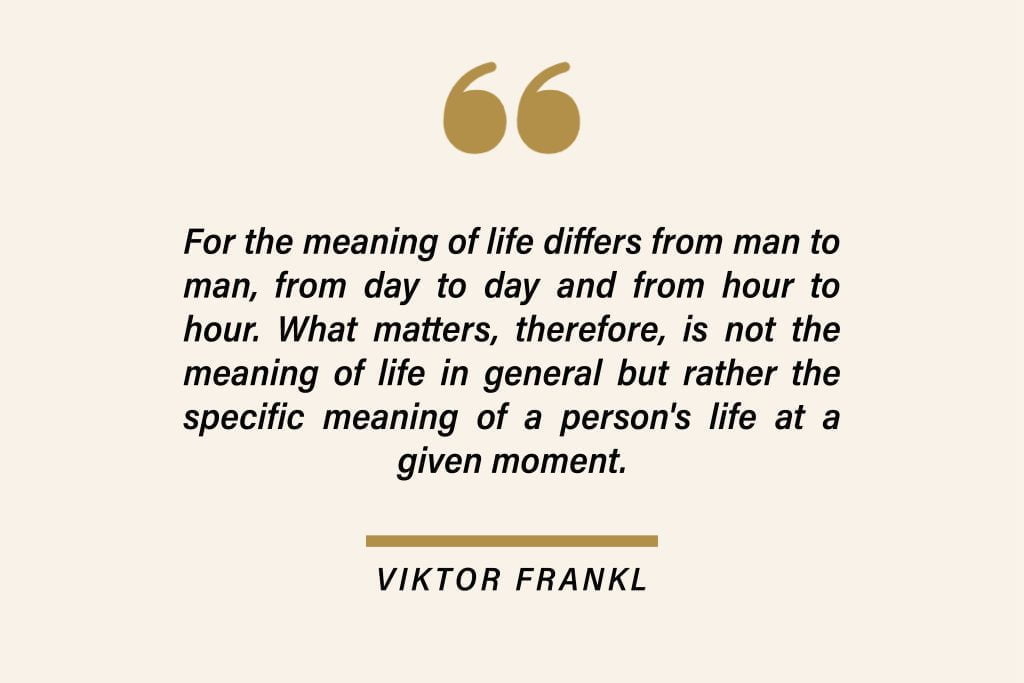9 Minutes
CONTENTS
As the sun sets behind the far mountains, a stunning palette of peach, orange, and pink is created. When we relish in the splendor of a sunset, contemplate creation, or hug a loved one, it gives us purpose. We sense the value of life when we engage in creative undertakings, engage with our community, and promote a greater cause than ourselves.
Then, what is it that gives life meaning? What makes these difficult moments, nights, and never-ending struggles worthwhile? The search for the answer to “what is the meaning of life?” has existed since the beginning of time.
Viktor E. Frankl contributed substantially to the field of finding purpose and meaning in life. He was a psychiatry and neurology professor at the Medical University of Vienna. Born on March 26, 1905, the Austrian psychologist, neurologist, and psychiatrist is best known for his psychological biography Man’s Search for Meaning (2006) and as the founder of logotherapy.
The concept of logotherapy is predicated on the idea that each individual’s basic drive is to discover the meaning of life.

In the subsequent sections of this article, we will learn more about the life and philosophy of Victor Frank, the origins of logotherapy, as well as its effectiveness and applications in modern neuroscience, psychology, and psychiatry.
A UNIQUE METHOD TREATING Books
a successful and proven concept focusing on underlying causesBooks TREATMENT LASTING APPROACH
0 Before
Send Admission Request
0 Before
Define Treatment Goals
1 week
Assessments & Detox
1-4 week
Psychological & Holistic Therapy
4 week
Family Therapy
5-8 week
Aftercare
12+ week
Refresher Visit
Books Insights
latest news & research on BooksNassim Nicholas Taleb
Nassim Taleb is a visionary and nontraditional thinker who wrote the popular book series The Black Swan, Fooled by Randomness, and Antifragile.
read more































































